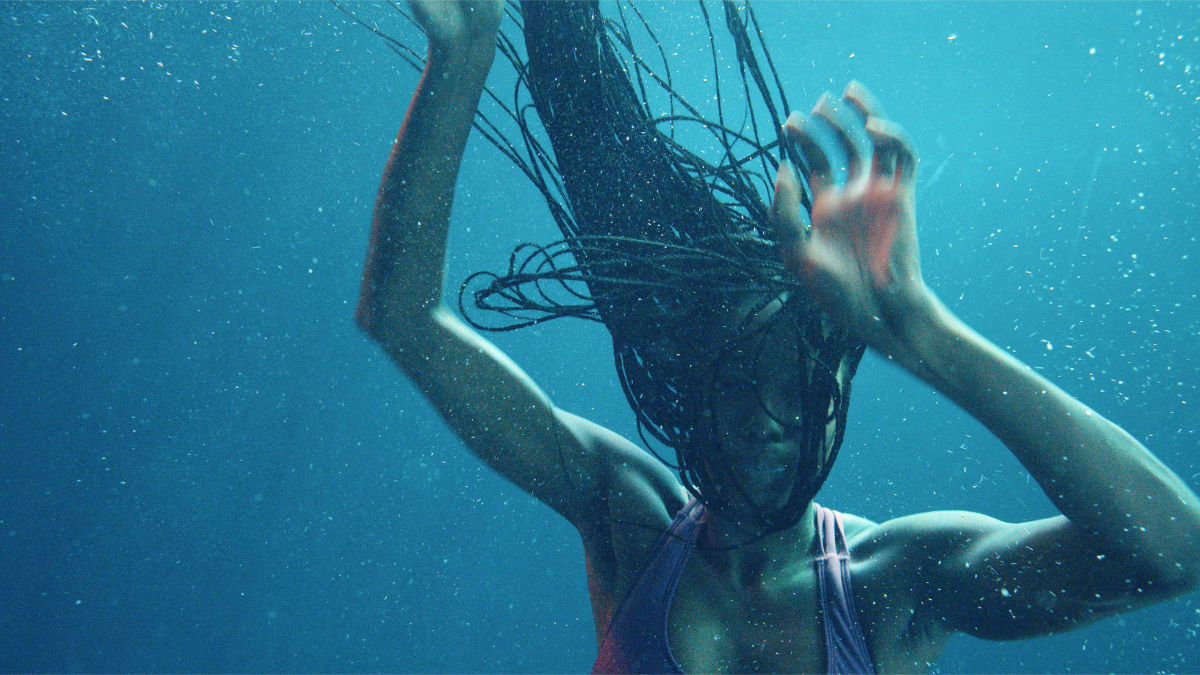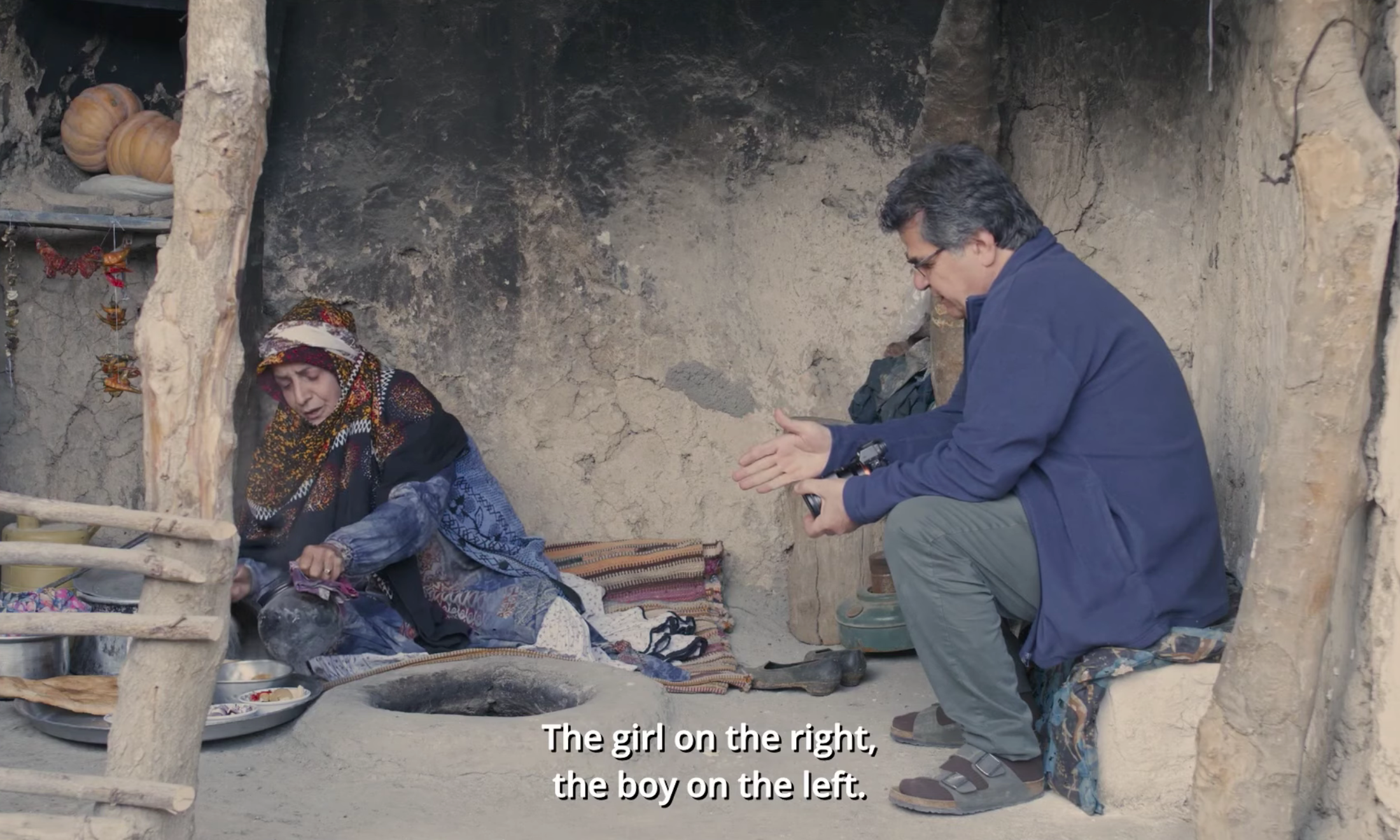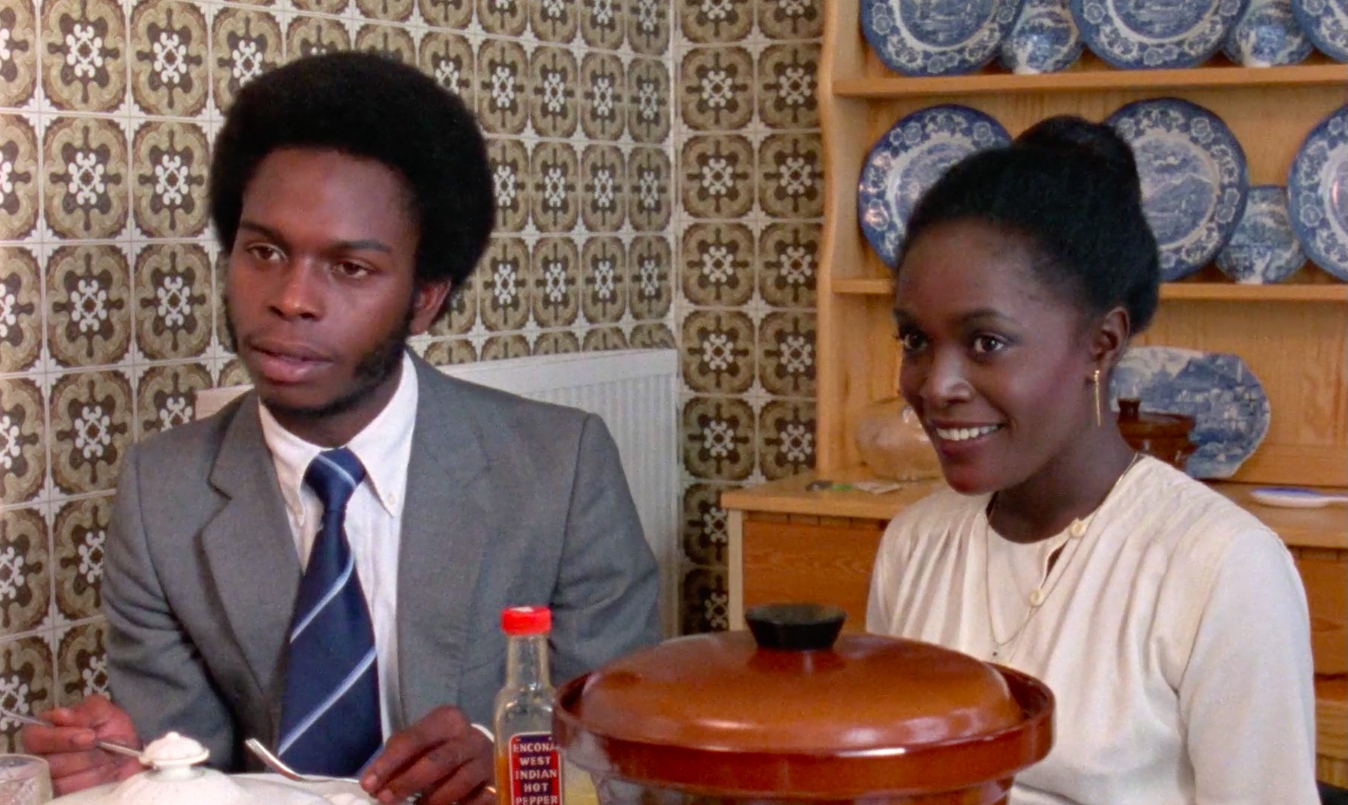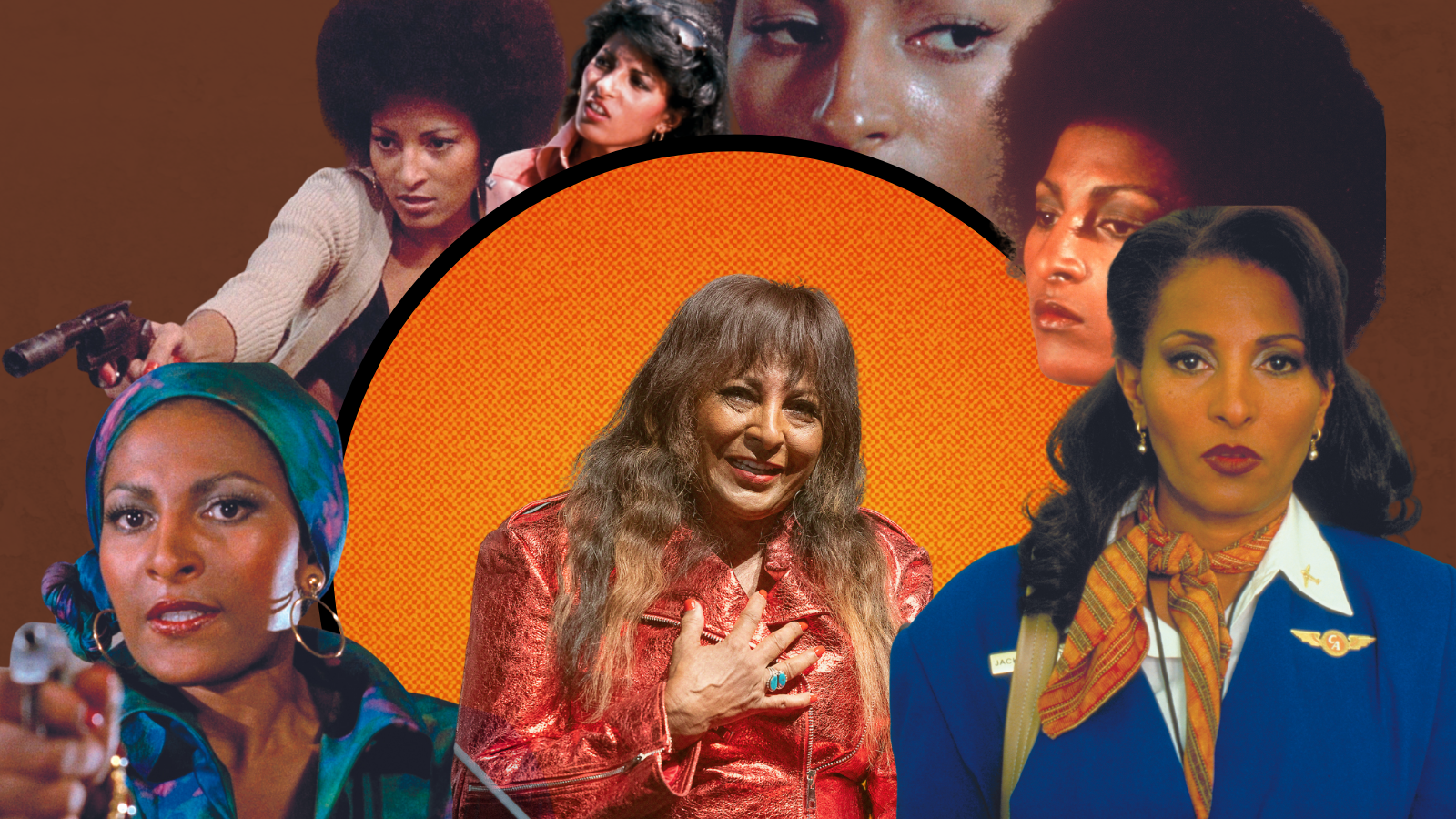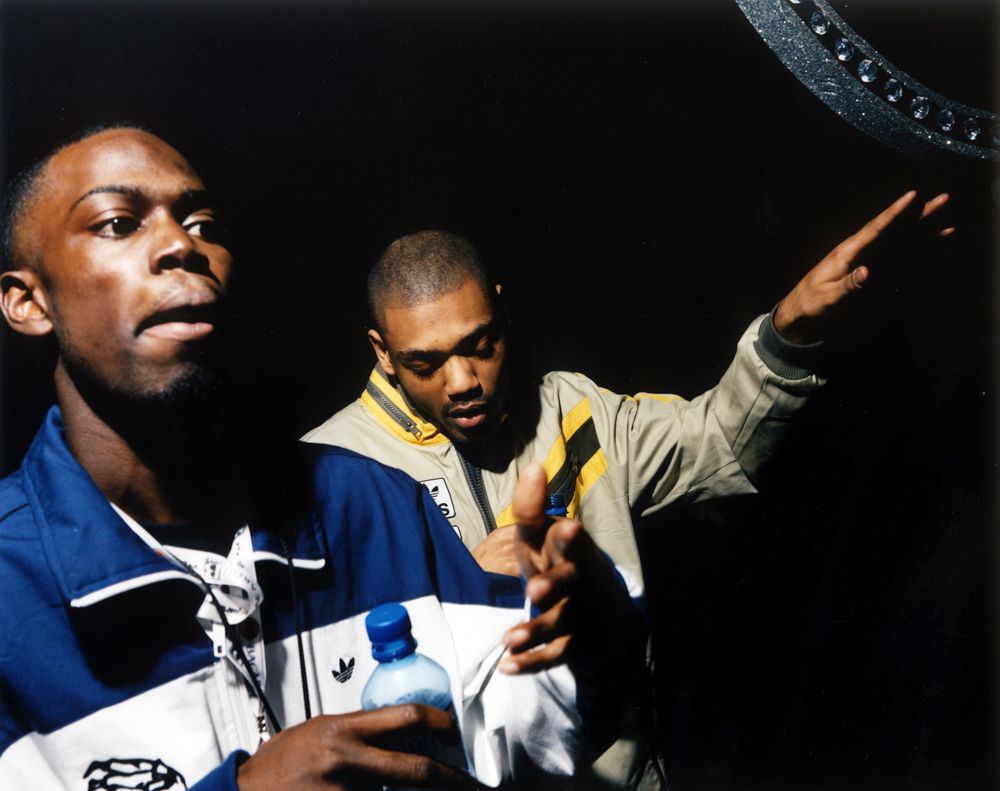
A still of Bernice Mulenga in The Muse, directed by Anna Fearon
Mirrors are enchanting, not just because you get to gaze at your own (gorgeous) face, but also because they’re a tool for soul-searching. Coming face-to-face with yourself is usually a moment of reckoning. Think of that moment when you look at yourself in the club toilets and realise you are a lot more fucked up than you realised. It’s that moment in the morning where you have a quiet word with yourself to pep yourself when you see your weary eyes.
Similarly, in The Muse, mirrors afford the protagonists a tender moment of self-reflection. Having recently been signed by London-based production company Greatcoat Films, this short is Anna Fearon’s first foray into film. But it’s masterfully done, and showcases the internal monologues of the cast as they look at themselves.
She explains: “The act of looking in the mirror is a private moment with yourself, of recognising yourself. As a queer person of colour you’re subjected to prejudgements, misrepresentation and lack there of. The Muse is about defining our own narratives.”
One powerful scene sees dancer Rema Kahsay contemplating. “I see generations before me, people that have fought for me to live my life with the freedom that I can,” she says. Elsewhere in the film we hear the ruminations of writer and artist Olivia Douglass, non-binary dancer Titilayo Adebayo, painter Sola Olulode who was shortlisted for the Evening Standard Art Prize last year for her tender depictions of romance, director Laura Kirwan-Ashman, and multi-disciplinary artist Bernice Mulenga.
While at first glance the thing that unites them is that they each sit at several axes of oppression, Anna, whose career started in photography, has cherry picked creators who are also carving out space for people from their community to see themselves. “The cast of the film is made up of a group of talented young creatives, exploring identity, blackness and queerness in different ways through their individual creative practices,” she explains.
We sat down to talk identity, introspection, and taking the time to piece yourself together.
What motivated you to create this intimate film?
I had been thinking for a while about the multifaceted layers that make up our identies, specifically of being black and queer. Audre Lorde’s Sister Outsider, which discusses intersectionality, has been very influential to me, particularly in giving me the language to articulate the intersections that make up our identities. There’s a need for more films exploring blackness and queerness from a female and non-binary perspective.
After watching Barry Jenkins’ film adaptation of the James Baldwin novel, If Beale Street Could Talk I came up with the idea of using the mirror as a vessel to explore identity and self-reflection. There’s this really powerful scene when Sharon Rivers (played by Regina King) takes her wig on and off in front of the mirror, there is a real intense vulnerability in the scene. It’s almost too drawn out in length. But, the mirror also works as a frame, like a frame of a painting for each subject, to represent self defining our own identities.
What are your own experiences in how your identities intersect, and what attitudes have you faced as a result?
My identity has been framed through the lense of being a queer mixed race black woman. I think race dominated my early awareness of and understanding of my identity, which I think was very much shaped by my environment – I went from living in a very multicultural London borough to moving to a predominantly white area. I felt conscious of being visibly different and experienced being othered as well as dealing with other people’s ignorance. I think of being mixed race and of having disconnected family ties, it’s been a personal journey of piecing together my identity and of learning my history.
My queerness is an element of my identity that has always been there but I was not always conscious of, I am still evolving as I continue to unlearn the binaries socially dictated to me surrounding sexuality and gender. For me personally I feel very much like my queerness is something I choose to share with people whereas I physically wear my skin colour and hair texture.
“We can’t connect with stereotypes and one dimensional characters. My inner child is always screaming whenever I see representation that was not there whilst I was growing up”
Anna Fearon
Why you think it’s important that there are more films told through the lens of the community?
Because there are so few stories that receive mainstream exposure, that centre people of colour by people of colour, those few people are often weighted with being a voice of a community. Yet we are not homogenous, and there are so many stories from different perspectives that need to be told. We can’t connect with stereotypes and one dimensional characters. My inner child is always screaming whenever I see representation that was not there whilst I was growing up. As we allow more stories to be told through our own lenses the better it will be for the next generation.
How would you describe your style of filmmaking?
This my first film. I’m a photographer who is just starting to move into filmmaking. Just as my photography focuses on centring black people, I think the style of filmmaking in The Muse, is very reflective of my photography background. I see the film as a series of moving portraits. I have always been fascinated with the relationship between the still image and moving image. A single image can lose its identity within a series, and so I wanted the images to feel quite slow and repetitive, almost meditative as a way of taking up space so you focus on the people in the film.
It all ties into the next issue of Blue Magazine, of which I am the editor. The ethos of the publication is a celebration of people of colour. The theme of the next issue is “the muse” and includes extended interviews with everyone featured in the film will be printed in the next publication.
The Muse was produced by Greatcoat films and commissioned by Random Acts, see more here.

